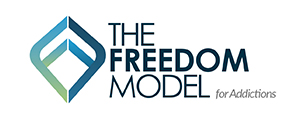Baldwin Research:
Addiction & Treatment
Research
Meeting and Addressing the Digital Revolution
Freedom at The Freedom Model Retreats
By the 1990s, many drug and alcohol rehabilitation programs began prohibiting tobacco use while in treatment. It is important to note that BRI researchers could find no credible studies demonstrating that tobacco use during drug and alcohol treatment versus no tobacco use during treatment affects treatment outcomes. There is one notable exception, if the substance use that the attendee is being treated for is nicotine, then the use of tobacco during treatment, obviously, has a dramatic affect as to the outcome. BRI's facilities prohibit alcohol, illegal drugs, and some prescription drugs on its premises, however, there has never been (and is not now) a prohibition against tobacco. As a practical matter, because BRI's Freedom Model Retreat Houses are housed in historical buildings, tobacco use is prohibited inside its buildings, but The Freedom Model Retreats provide comfortable accommodations for tobacco users outside. Finally, The Freedom Model Retreats have posted, year after year, the highest post-program abstinence rates in the country as determined by independent studies and has always allowed tobacco use, BRI researchers quite accurately determined that tobacco use has virtually no effect on drug and alcohol program outcomes.
Since the formalized drug and alcohol treatment programs began in earnest during the late 1940s, treatment programs claimed that program attendees were helped by working (i.e. doing chores) as part of their treatment. For example, it was, and is, commonplace for treatment program attendees to be required to participate in the more mundane tasks of the treatment program's operations, e.g. cleanup after meals, doing dishes, sweeping and mopping floors, vacuuming floors, dusting, cleaning bathrooms, gardening, taking out the garbage, mowing grass and the like. Moreover, many treatment programs require attendees to do chores that include property improvement projects such as painting buildings and rooms, manual excavation projects, and landscaping. The theory was, and is, that by doing all this work the attendees are being taught "how to serve others", which has always been considered essential to abstaining from drug and alcohol use. This idea is just one more throwback idea that emanated from AA's perverse pyramid scheme that uses the concept of "service to others" to gain a larger and more lucrative membership. The program at The Freedom Model Retreats does not currently include chores as a method of learning, and has not since 2001. However, prior to 2001, then the Saint Jude Program, did include a "chores list" as a means for the guests to pitch in to keep the home clean under the idea that this type of work added to the guests' experience in the program. But as the years progressed, it became obvious that this idea was totally unnecessary and did nothing to promote a greater abstinence rate and just made the guests complain while they were enrolled in the program. And like many of the programmatic changes that occurred over the years, dropping the "chores list" from the retreat experience was one more change in striving for reasonable and effective methods to help people self-change.
Although the 1980s began the personal technological revolution, it wasn't until the 1990s that laptops, cell phones, and Wi-Fi gained popularity. During the early 2000s, laptops, cell phones, and Wi-Fi had become commonplace; most people had at least one or more of these devices. The dawning of these technological advancements brought about an inexplicable reaction within the drug and alcohol treatment industry. For reasons still unknown, drug and alcohol treatment programs universally prohibited the use of these devices while attending drug and alcohol rehabilitation programs. Drug and alcohol treatment programs asserted that the use of these devices during treatment is such a distraction from the content of treatment that attendees' outcomes are compromised. Such assertions are totally without merit. BRI researchers have found no legitimate studies that support the notion that personal computers, cell phones, and Wi-Fi use while attending drug and alcohol treatment programs have any negative influences on outcomes, but more recently a few researchers have suggested that having and using these devices during drug and alcohol treatment may have a positive effect on the treatment experience. Consider that THe Freedom Model Retreats have never banned the use of personal computers, cell phones, and Wi-Fi and has, year after year, afforded its guests the highest independently verified success rate. In fact, The Freedom Model Retreats provides Wi-Fi in all its facilities, along with desktop computers, internet access, and cell phone signal boosters (where needed). Technological advancements are a fact of life and as such, drug and alcohol rehabilitation treatment programs must accommodate these advancements or go the way of every other organization that spurns progress.
Most certainly smoking tobacco versus no smoking and cell phone use versus no cell phone use make for interesting discussions, but such topics were not the central thrust of BRI research. As discussed earlier in this paper, the crux of BRI's research was to identify and understand the vital elements that define social and educational approaches for helping people overcome drug and alcohol problems. Even though the social aspects of the physical structure and its attendant environs are important considerations, the most significant social research conclusions had to do with "on-going support meetings."


